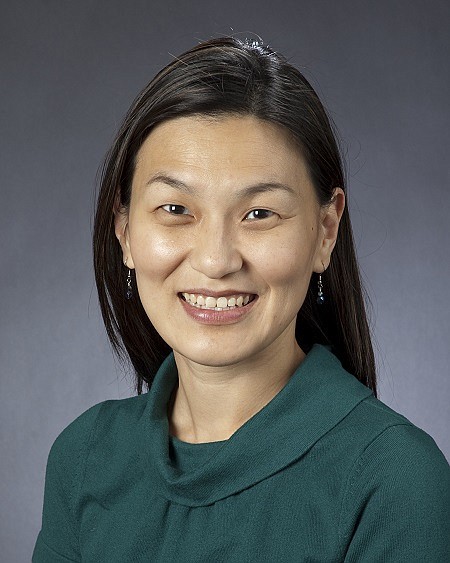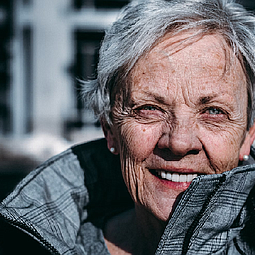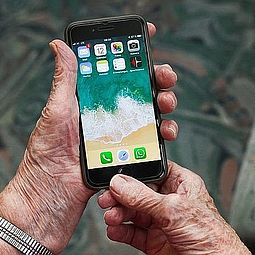Awareness, Assertiveness are Key
January 28, 2018 at 2:19 p.m.
Marysville resident and behavioral therapist Wendy Knowles never thought she was at risk for a heart attack, especially since she is only 47 and lives a healthy lifestyle.
However, when she recently experienced muscle spasms in her shoulders, followed by throbbing in her arms and jaw and a sense of something sitting on her chest, Knowles listened to her body, swallowed an aspirin and drove to the nearest emergency department (ED) in Arlington. The decision to not ignore her symptoms and act quickly proved fortuitous when, within a few hours, her hometown ED transferred Knowles to Virginia Mason. Shortly after her arrival, she found herself in a cardiac catheterization lab where an angiogram (real-time imaging of the heart arteries using dye) showed that her left anterior descending (LAD) artery (a large vessel supplying the front of the heart) was completely blocked. Her blockage was opened with a balloon (angioplasty) and propped open with a stent (small, cylindrical, wire mesh device that helps keep heart vessels open). The minimally invasive procedure was performed through an artery in her wrist. She was subsequently placed on five medications, some of which she will remain on for life, and has started cardiac rehabilitation.
“When my interventional cardiologist told me that my LAD was completely blocked, which is called a ‘widow maker’ since many people suddenly die as a result, it hit me hard,” said Knowles. “Awareness and assertiveness saved my life.”
Heart attack symptoms in women
While chest discomfort is the most common heart attack symptom in women, it may not be the first as Knowles’ experience supports. For unknown reasons, women’s symptoms tend to be more subtle or atypical.
They can include:
• Extreme fatigue
• Squeezing or burning in the chest
• Severe indigestion or pressure in the lower chest or upper abdomen
• Pain in the upper back or shoulders
• Jaw or neck pain
• Nausea or vomiting
• Shortness of breath
Intense and unfamiliar symptoms and pain that worsens with exertion, but eases with rest, should be checked out immediately. A sudden, cold sweat
or pronounced abdominal pressure would also be reasons for concern. For some women, heart attack symptoms may not surface at once. Instead, they can build or stutter over time, weeks or days before the heart attack becomes evident. If you suspect a heart attack, do not hesitate to seek evaluation, even if you have never considered yourself at risk. Swift action could save your life.
Heart attack risk factors in women
Although heart attack symptoms between women and men can differ, risk factors for heart disease between the sexes are the same. They include:
• Diabetes
• Smoking
• High blood pressure
• High cholesterol
• Being overweight or obese
• Lack of regular aerobic exercise
• An unhealthy diet
• Family history of premature coronary disease
In fact, some of these risk factors play a more significant role in the development of heart disease in women than they do in men. For example, a woman who smokes has a greater increase in risk for heart disease than a man who does, as is also the case for a woman who has diabetes.
There are also specific risk factors that affect only women. Females who have high blood pressure while pregnant (preeclampsia) are at increased risk for heart disease later in life. The rate of heart disease in women also increases dramatically after menopause, when estrogen levels drop.
Takeaways
Make time to speak with your health care provider about your individual risk for heart disease. Review your personal and family medical history to better understand your overall risk. And if you suspect you might be having a heart attack, even if symptoms seem vague, don’t ignore them and don’t wait. Seek emergency help right away. Don’t drive yourself to the nearest hospital. Call 911.
Eastside resident J. Susie Woo, MD, FACC, is board certified in internal medicine, advanced heart failure and transplant cardiology. Her specialties include echocardiography, nuclear cardiology, heart failure and preventive cardiology. She practices at Virginia Mason Bellevue Medical Center and Virginia Mason Hospital and Seattle Medical Center
MORE INFORMATION
• VirginiaMason.org/Women-andheart-disease or call (206) 341-1111






